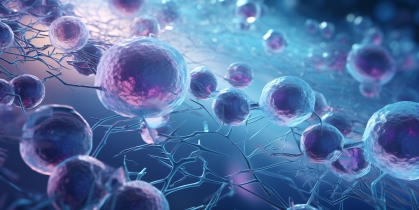Molecular, Cellular, and Biomaterials Engineering

One of the most fertile biotechnological areas for the development of new and innovative medical therapies for the next century lies in the realm of molecular, cellular, and biomaterials engineering. Given the remarkable advances over the past few decades in cataloguing the molecular “parts lists” of cells, increasing our fundamental understanding of the functions and behaviors of cells and tissues, and developing new enabling technologies such as micro, nano, and bio-inspired material fabrication methods, we are poised in the 21st century to translate this basic knowledge into vast improvements in the practice of medicine.
By combining basic science, engineering problem-solving and clinical wisdom, age-old handicaps that used to devastate people's lives - blindness, deafness, paraplegia, organ dysfunction and failure, memory loss, and even death - may be circumvented by cell transplants, advanced drug delivery systems, intelligent prostheses, neural implants, artificial organs, and natural organs regrown after injury or disease. The ability to grow and connect physiologically faithful organs in the laboratory is finding increasing utilization for testing of therapeutic molecules, cells, and devices. Finally, current estimates of the global organ transplantation market is in excess of $90 billion, and that for regenerative medicine is estimated to be over $30 billion.
Faculty in this research area are:
• Investigating basic cellular and tissue phenomena
• Developing new biomaterials using transformative approaches from robotics and machine learning
• Developing methods and materials for the construction of functional tissue and organ substitutes
• Developing micro-devices that can support biological cells and tissues, and that can be used as key dynamic tools that bridge the gap between conventional cell culture and animal studies
• Investigating engineering principles and scale-up of stem cells, iPS (Induced pluripotent stem) cells and other cellular therapeutics
• Developing integrative computational and experimental approaches to identify, verify and characterize the genetic regulatory elements, e.g., the conserved non-coding DNA sequences and their interacting protein factors that involved in the gene regulation in stem cells
• Developing enabling technologies to reduce the costs and time required for the next generation of immune cell therapies
• Developing biomaterial scaffolds and therapeutic cells – such as stem cells - to promote tissue repair and regeneration
• Developing advanced methodology for drug delivery including nanomedicines based on polymers and lipids
Research Clusters
Molecular and Cellular Biophysics
Associated Faculty: Nada Boustany, Mark Pierce, Adrian Mann, Charles Roth, David Shreiber, Valerie Tutwiler, Martin Yarmush, Jeffrey Zahn
Cell and Gene Therapies
Associated Faculty: Li Cai, Biju Parekkadan, Charles Roth, David Shreiber, Martin Yarmush, Jeffrey Zahn
Biomaterials and Drug Delivery
Associated Faculty: Francois Berthiaume, Adam Gormley, Noshir Langrana, Adrian Mann, Prabhas Moghe, Charles Roth, David Shreiber, Martin Yarmush
Cell Bioreactors
Associated Faculty: Joseph Freeman, Biju Parekkadan, Martin Yarmush